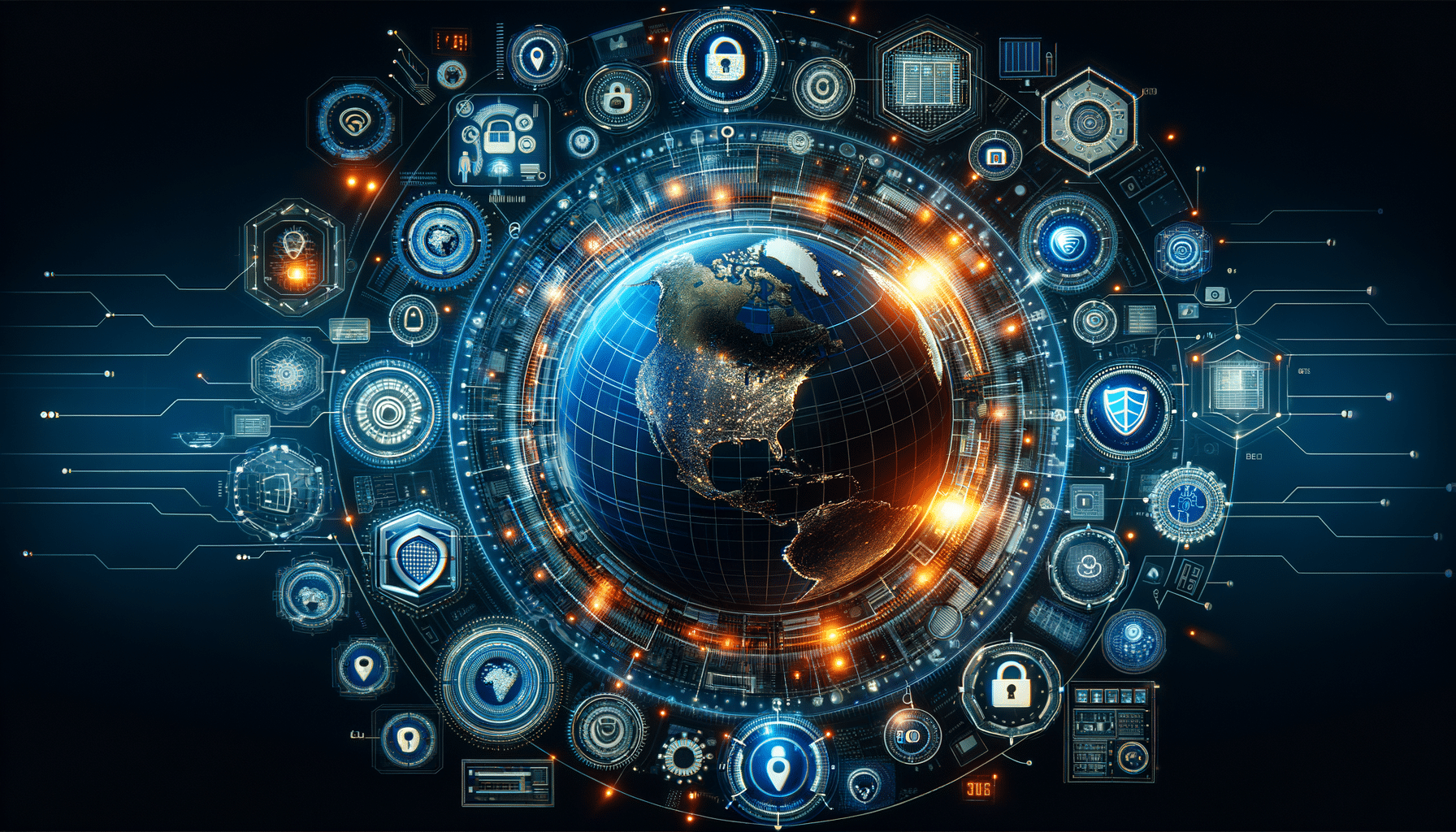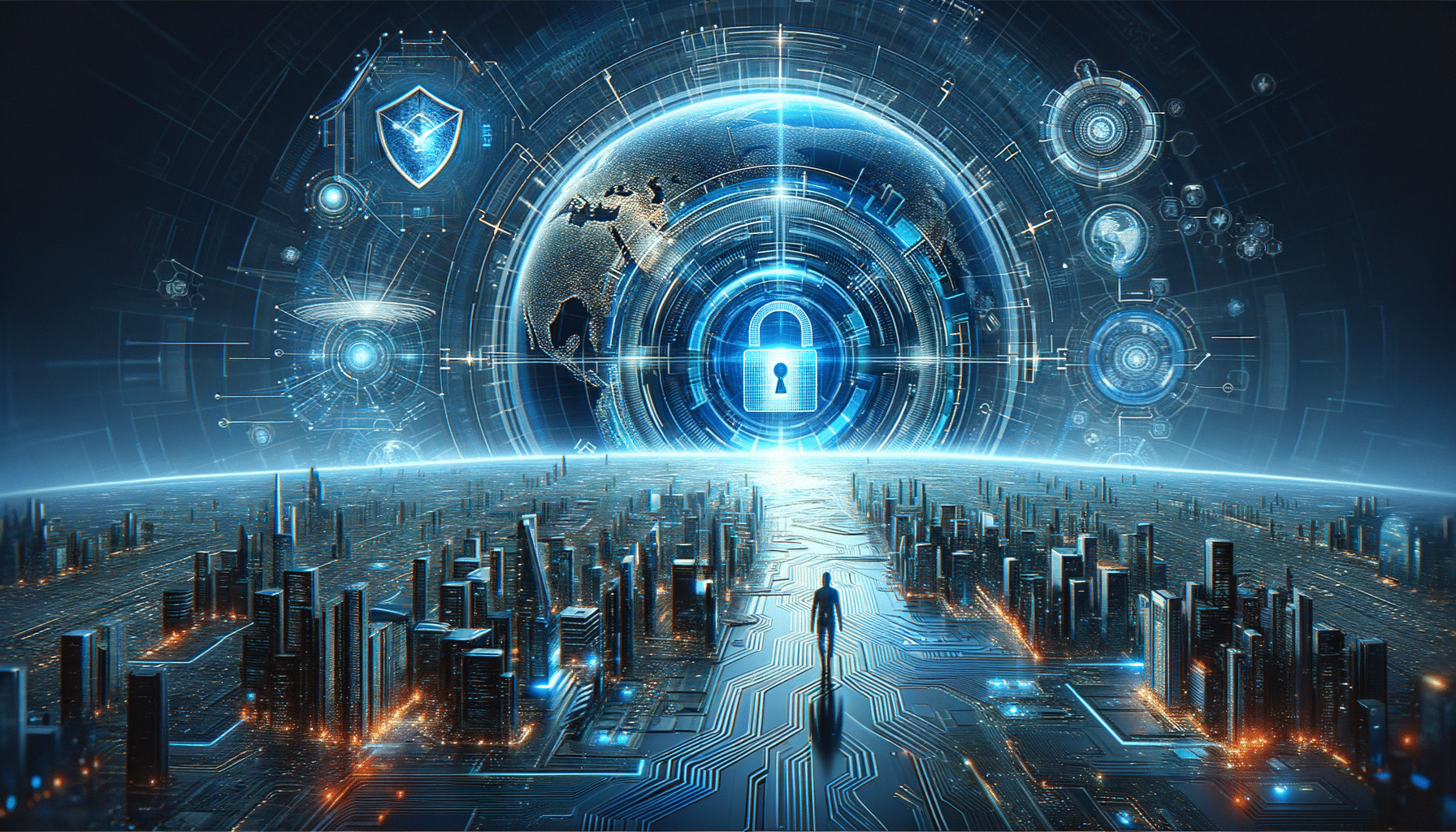
Discover Cyber Security Solutions for Global Protection in 2025
The Evolving Landscape of Cyber Security
The digital world is growing at an unprecedented rate, and with it, the landscape of cyber security is evolving. As more businesses and individuals rely on digital platforms, the importance of robust cyber security measures cannot be overstated. Cyber threats are becoming increasingly sophisticated, targeting a wide range of sectors, including finance, healthcare, and even personal data. The need for comprehensive cyber security solutions is more critical than ever, ensuring that sensitive information remains protected from malicious actors.
Recent statistics highlight the urgency of implementing effective cyber security strategies. According to a report by Cybersecurity Ventures, global cybercrime costs are expected to reach $10.5 trillion annually by 2025, up from $3 trillion in 2015. This staggering figure underscores the necessity for businesses and individuals to adopt advanced security measures to safeguard their digital assets.
Cyber security solutions today encompass a broad spectrum of tools and practices, from firewalls and antivirus software to advanced threat detection systems and encryption technologies. These solutions are designed to protect networks, devices, and data from unauthorized access and attacks. As cyber threats continue to evolve, so too must the strategies and technologies employed to combat them.
Cyber Security Tools for Remote Workers
With the rise of remote work, cyber security has become a top priority for businesses worldwide. Remote workers often use personal devices and unsecured networks, making them prime targets for cybercriminals. To address these vulnerabilities, companies are investing in cyber security tools specifically designed for remote work environments.
One of the most effective tools for remote workers is a Virtual Private Network (VPN). VPNs encrypt internet traffic, ensuring that sensitive data remains secure even when using public Wi-Fi networks. Additionally, endpoint security solutions are crucial for protecting devices from malware and other threats. These solutions often include features such as firewalls, antivirus software, and intrusion detection systems.
Another critical aspect of cyber security for remote workers is the implementation of strong authentication measures. Multi-factor authentication (MFA) adds an extra layer of security by requiring users to provide multiple forms of identification before accessing sensitive information. This reduces the risk of unauthorized access and helps protect against phishing attacks.
To further enhance security, businesses are also providing regular training sessions for remote employees. These sessions educate workers on the latest cyber threats and best practices for maintaining security, such as recognizing phishing emails and using strong, unique passwords.
Protecting Small Businesses from Cyber Threats
Small businesses are often seen as easy targets for cybercriminals due to their limited resources and less sophisticated security measures. However, implementing effective cyber security strategies is crucial for protecting these businesses from potential threats.
One of the first steps small businesses can take is to conduct a thorough risk assessment. This involves identifying potential vulnerabilities and assessing the likelihood and impact of various cyber threats. Based on this assessment, businesses can prioritize their security efforts and allocate resources more effectively.
Small businesses should also consider investing in comprehensive security solutions that include antivirus software, firewalls, and intrusion detection systems. These tools help protect against a wide range of threats, from malware and ransomware to phishing attacks.
Additionally, small businesses can benefit from partnering with managed security service providers (MSSPs). These providers offer expert guidance and support, helping businesses implement and maintain effective security measures. By outsourcing their security needs, small businesses can focus on their core operations while ensuring their digital assets remain protected.
Cyber Security for Content Creators
Content creators face unique cyber security challenges, as their work often involves handling sensitive information and intellectual property. Protecting this data is essential to maintaining their reputation and ensuring the success of their projects.
One of the primary concerns for content creators is protecting their intellectual property from theft or unauthorized use. Digital rights management (DRM) tools can help creators secure their work by controlling access and preventing unauthorized distribution. These tools often include features such as watermarking, encryption, and access controls.
In addition to DRM, content creators should also implement strong security measures for their devices and online accounts. This includes using antivirus software, firewalls, and secure passwords. Regularly updating software and operating systems is also crucial for protecting against vulnerabilities and ensuring that devices remain secure.
Content creators can further enhance their security by using cloud-based storage solutions with strong encryption and access controls. These platforms offer a secure environment for storing and sharing files, reducing the risk of data breaches and unauthorized access.
The Future of Cyber Security
As technology continues to advance, the future of cyber security will be shaped by new innovations and emerging threats. One of the most promising developments in the field is the use of artificial intelligence (AI) and machine learning to enhance security measures. These technologies can analyze vast amounts of data in real-time, identifying patterns and anomalies that may indicate a potential threat.
Another area of focus for the future of cyber security is the development of quantum computing. While still in its early stages, quantum computing has the potential to revolutionize encryption methods, making it significantly more difficult for cybercriminals to crack secure communications.
As cyber threats become more sophisticated, collaboration between governments, businesses, and individuals will be essential for developing effective security strategies. This includes sharing information about potential threats and best practices for maintaining security.
Ultimately, the future of cyber security will depend on the ability of organizations and individuals to adapt to new challenges and embrace innovative solutions. By staying informed and proactive, we can ensure that our digital world remains secure and resilient in the face of evolving threats.


